Salah Eddine Zegrar
Effect of Prefix/Suffix Configurations on OTFS Systems with Rectangular Waveforms
May 30, 2022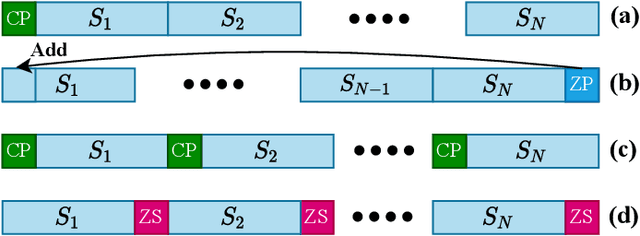
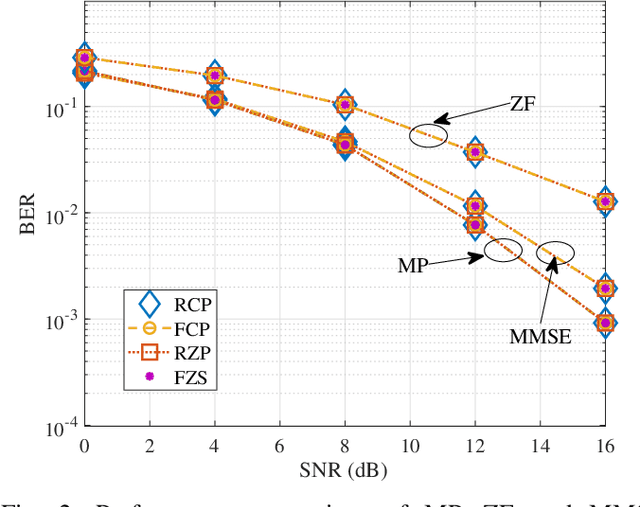
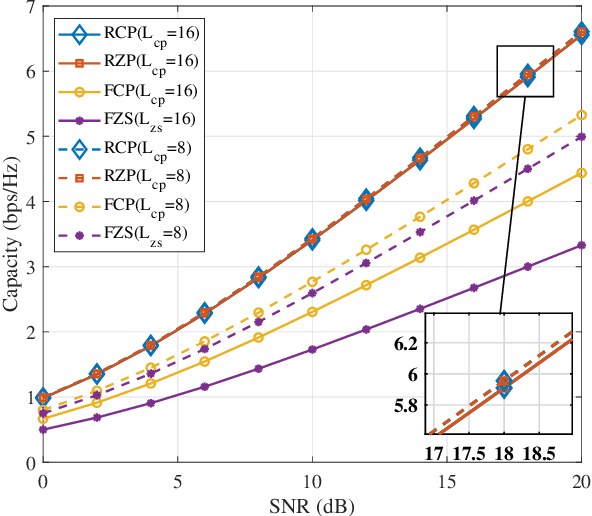
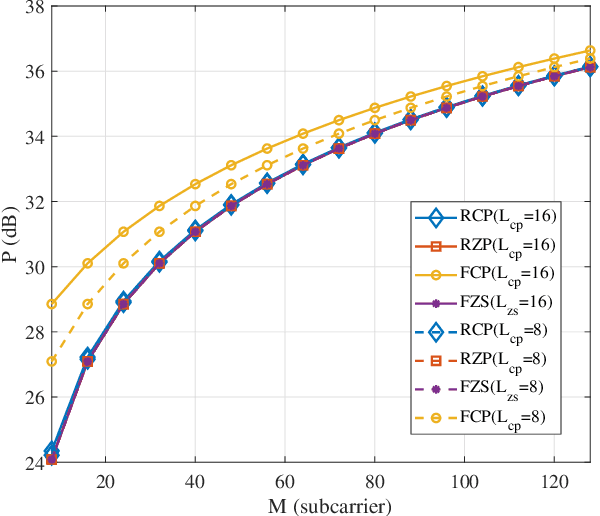
Abstract:Recently, orthogonal time-frequency-space (OTFS) modulation is used as a promising candidate waveform for high mobility communication scenarios. In practical transmission, OTFS with rectangular pulse shaping is implemented using different prefix/suffix configurations including reduced-cyclic prefix (RCP), full-CP (FCP), full-zero suffix (FZS), and reduced-zero padded (RZP). However, for each prefix/suffix type, different effective channel are seen at the receiver side resulting in dissimilar performance of the various OTFS configurations given a specific communication scenario. To fulfill this gap, in this paper, we study and model the effective channel in OTFS systems using various prefix/suffix configurations. Then, from the input-output relation analysis of the received signal, we show that the OTFS has a simple sparse structure for all prefix/suffix types, where the only difference is the phase term introduced when extending quasi-periodically in the delay-Doppler grid. We provide a comprehensive comparison between all OTFS types in terms of channel estimation/equalization complexity, symbol detection performance, power and spectral efficiencies, which helps in deciding the optimal prefix/suffix configuration for a specific scenario. Finally, we propose a novel OTFS structure namely reduced-FCP (RFCP) where the information of the CP block is decodable.
Flexible Physical Layer Security for Joint Data and Pilots in Future Wireless Networks
Oct 22, 2021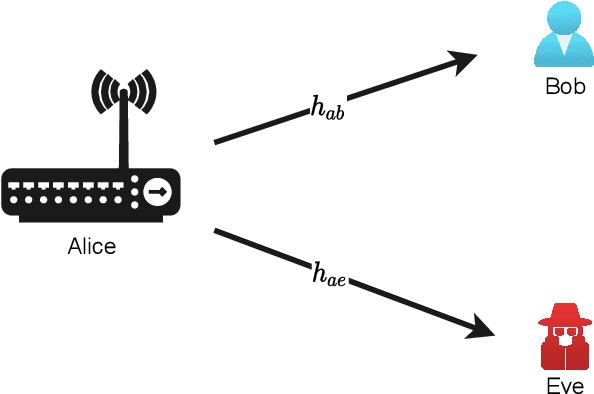
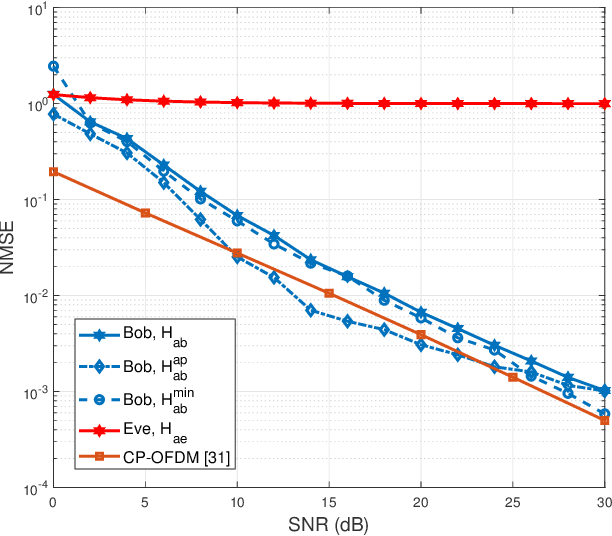


Abstract:In this work, novel physical layer security (PLS) schemes are proposed for orthogonal frequency-division multiplexing (OFDM) to secure both data and pilots. The majority of previous studies focus on only securing the data without considering the security of the pilots used for channel estimation. However, the leakage of channel state information (CSI) from a legitimate node to an eavesdropper allows the latter to acquire knowledge about the channel of the legitimate nodes. To this end, we propose adaptive and flexible PLS algorithms which can 1) secure data, 2) secure pilots, and 3) jointly secure both data and pilots. Particularly, minimum-phase all-pass channel decomposition is exploited, where the proposed algorithms use the all-pass component to provide security without harming the performance of the legitimate user. In the analysis for data security, we evaluated the secrecy under correlated and uncorrelated eavesdropping channels via closed-form bit error rate (BER) formulas. For pilot security, we analyzed the normalized mean squared error (NMSE) performance of the estimated channel. The simulation results along with theoretical analysis demonstrate that the proposed algorithms can effectively enhance the communication secrecy of the overall system.
 Add to Chrome
Add to Chrome Add to Firefox
Add to Firefox Add to Edge
Add to Edge